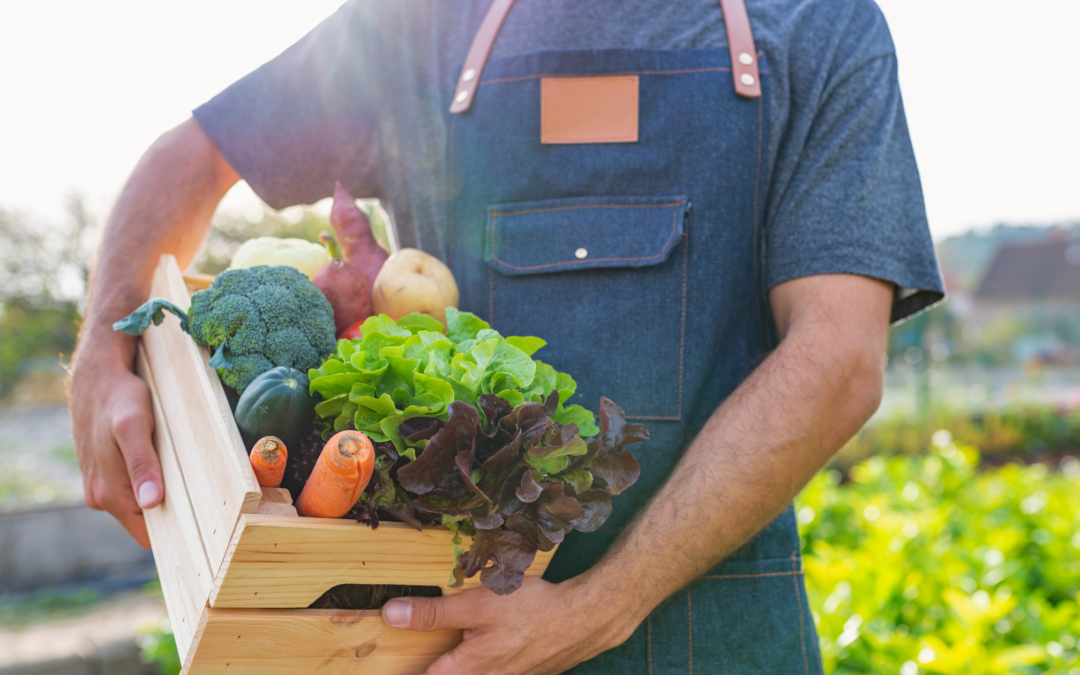We all have that one food that we can never resist, no matter what. For some, it’s pizza (ME), while for others, it’s ice cream. I’ll be honest – I grew up in New Jersey eating bread, pasta, and yep – pizza. Those foods still comfort me to this day, but if I’m honest, I feel like crap later! As we grow older, we realize being able to eat whatever we want, whenever we want is not all it’s cracked up to be. The things we once loved to indulge in now make us feel bloated, fatigued, and even anxious. Foods that make you feel good when eating them but then leave you feeling crappy make your hormones SAD.
This is especially true for women who have hormone issues. Our hormones play a crucial role in how we feel emotionally and physically. This makes it essential to understand which foods make our bodies and hormones HAPPY. In this blog post, we’ll dive into the foods that make you feel good and also improve your hormones.
Foods that make your hormones sad
- Food stored in plastic
- Processed food
- Produce sprayed with pesticides
- Foods low in fiber
- Foods low in good-quality fat (cooked in healthy oils)
- Foods that contain artificial preservatives (like MSG)
- Foods that contain artificial colors and flavors
- Meat and poultry that contain antibiotics
Let’s dive into the why.
Food stored in plastic or processed food
We all have been guilty of opting for packaged and processed foods. So convenient. Most processed foods contain harmful chemicals though. These are preservatives, artificial colors, and flavors. These can affect our hormones. The chemicals in plastic packaging act as hormone disruptors. When these make their way into the food we consume, it affects us in the long term. It’s always better to go for fresh and whole food options. These are free from harmful chemicals.
Produce sprayed with pesticides
Most of us don’t realize; even the fruits and veggies we eat may contain harmful pesticides. These affect our hormones! Eating pesticide-laden produce could result in:
- Disrupted menstrual cycles
- Weight gain
- Even infertility
So what can you do? Switch to organic produce, wash your fruits and vegetables and incorporate probiotics into your diet. Doing so can help mitigate the damage caused by pesticides.
Foods low in fiber
Fiber is essential for optimal health, especially gut health, digestion and hormone balance. Eating a high-fiber diet consisting of fruits, vegetables, and whole grains can help regulate hormones. Fiber also helps:
- Controlling weight gain
- Inflammation markers
- Reduce the risk of developing chronic diseases
- Keep you satiated for longer, ensuring you don’t indulge in foods that make your hormones sad
Foods low in good-quality fat
Fats are an essential macronutrient. We need to incorporate healthy sources of fats into our diet for hormone balance. Healthy fats play a crucial role in:
- Producing hormones in our bodies
- Reducing inflammation
- Keeping our hearts healthy
Incorporating avocados, nuts, seeds, and fatty fish into your diet can help regulate hormones. And keep them happy!
Foods that contain artificial preservatives
Artificial preservatives are commonly found in fast food, processed food, and even some canned products. These preservatives act as hormone disruptors, leading to issues like:
- Weight gain
- Thyroid dysfunction
- Imbalanced sex hormones
A simple solution is to read the labels while you shop. Opt for food items that are free from preservatives, and stick to whole food options that are rich in vitamins and minerals.
What foods make your hormones HAPPY?
Foods that make you feel good when you are eating them, improve your mood, give you energy, and sustain you through the day are the ones that make your hormones sing “Joy to the World.” Choose foods like:
- Organic fruits and vegetables (especially berries!)
- Non-GMO, wild-caught fish, and free-range beef and poultry
- Nuts and seeds
- Healthy oils (avocado is my fave for baking and EVOO for salad dressings)
- Cage-free, organic eggs
- Non-GMO protein powders (grass-fed or plant-based)
- Dark chocolate (hallelujah!)
- High-fiber foods
Focus on eating a balanced variety of foods like the ones mentioned above. Seek out those rich in nutrients and free from harmful chemicals. A good rule of thumb is to stick with whole foods, prepare your meals from scratch, and incorporate healthy sources of fats into your diet. Try to eliminate or reduce foods that contain preservatives, artificial colors, and flavors. It’s essential to remember that what we eat has a direct impact on how we feel emotionally and physically. Choose wisely!


Recent Comments